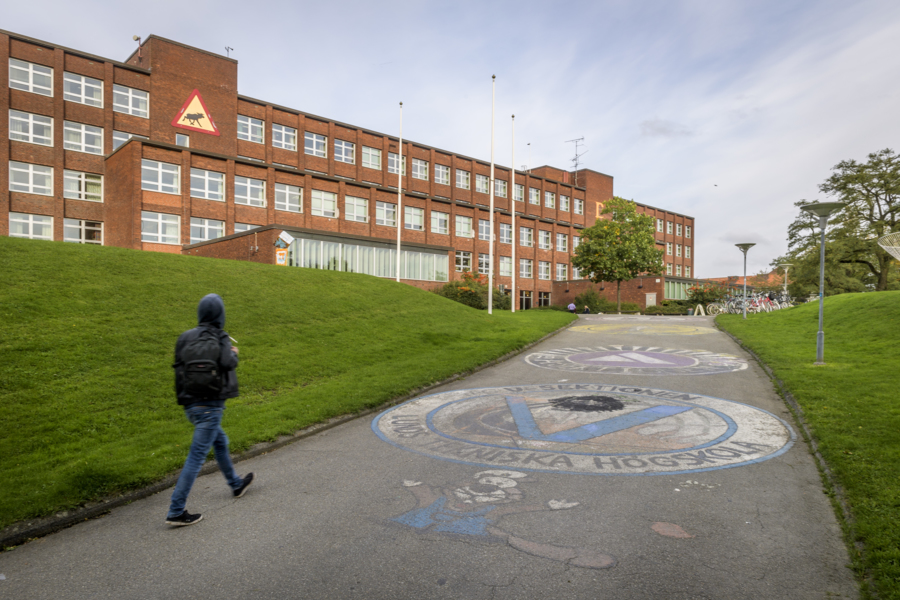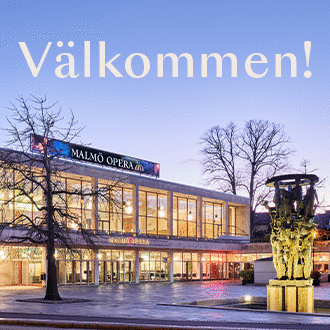On 26th of February, ten LTH employees criticised the management of LTH in an open letter for its stance on the recent conflict in the Middle East. The letter claims that the department is creating a "wall of silence", preventing LTH employees to express their own stance within the academic community. LTH refutes the accusations by referring to its principle of neutrality and respect for freedom of speech.
On 13th of February, a poster for Aimpoint, a company which makes telescopic sights and sells them to a number of customers, including the Israeli army, was displayed in the LTH’s M building. As a response to the poster, a group of LTH employees submitted an open letter to the LTH management, urging them to ”set ethical boundaries for LTH and its sections”. In this letter the writers also argue that the Aimpoint poster would disrupt the work of students and workers who are sensitive to this issue.
– I don’t want to be complicit to a genocide, exclaims Charlotta Tjärdahl, a quality coordinator of LTH resources, and one of the signees of the letter.
– The university doesn’t take into account the feelings of some students or employees. So we’re calling for discussion.
Like Charlotta Tjärdahl, Taqwa Saeed, a postdoctoral fellow, expressed the extent to which the university’s silence had become unbearable. Taqwa Saeed highlights how she considers the first bricks in the ”wall of silence” to be a lack of interest in the Palestinian cause from the part of the university,
– No one talks about it. To me, it made me feel isolated. In 2021, I saw the support for Ukraine in Sweden. I am Arab. So this lack of interest makes me feel less than a person when it comes to this community, she says.
– Refaat Alareer, an English teacher at Razah University, was killed by an attack. I printed one of his poems ‘If I must die’, to display in a lunch area. Ten minutes later, it was taken away . I just wanted to point out that civilians were dying. But I was told that ”people die all the time”. That phrase still haunts me, Taqwa Saeed recounts.
Sayed*, a previous PhD student at LTH and another signee of the open letter shares many of the experiences of Taqwa Saeed. On November 9th, at the defence of his PhD thesis he felt that neither the attendees nor the department showed adequate interest or respect for the palestinian cause,
– I wore a traditional Palestinian scarf. The people whom I considered colleagues for five years didn’t even ask me how I felt, or even how my family is doing, he says.
Two weeks after announcing his support of the Palestinian people in his thesis defence, to no response, Sayed was called to a meeting by the head of his department. He was told that many people present at his defence had complained about his statements about the situation in Gaza. Then Sayed recounts, the head of the department read out a note saying that the university supported freedom of expression.
Like Charlotta Tjärdahl and Taqwa Saeed, Sayed thinks that the university has failed in its mission.
– The purpose of an academic education is to create people who are free to think and to have opinions and decisions. If people don’t have opinions or can’t express themselves, then they’ve just failed, says Sayed.
Annika Olsson, dean of LTH responds to the accusations made by Charlotta Tjärdahl, Sayed and Taqwa Saeed by email. In response to the letter writers’ claim that the university exhibits a double standard in its differing treatments of the conflict in Ukraine and Gaza Annika Olsson says that LTH condemns all violence against civilians.
”Even if it is not the University’s role to conduct foreign policy, we can take a position when our own operations are affected and when free academia is threatened in different parts of the world,” she continues.
Annika Olsson further states that LTH’s cooperation with Russia has ceased at the request of the Swedish government.
”This is despite the fact that we normally always advocate academic cooperation over boycotts,” Annika Olsson says.
She also says that, while LTH is following the developments in Israel and Palestine closely, there are no cooperation agreements at university level with any of the universities in the region.
In response to the accusations made by the letter signees regarding the silencing of individuals, Annika Olsson claims that this is not due specifically to their support of the palestinian cause.
”We don’t silence voices or comment on anyone’s views. No one risks reprisals for their views. The participation of staff and students in the democratic debate and the expression of their opinions are a constitutional right for everyone.”
”Special rules apply in the workplace for political activities and posters. Everyone should feel safe in University environments”
Annika Olsson maintains that it is not LTH’s role to conduct its own foreign policy, but rather to provide a good academic environment for all.
*The name has been changed to insure anonymity.










